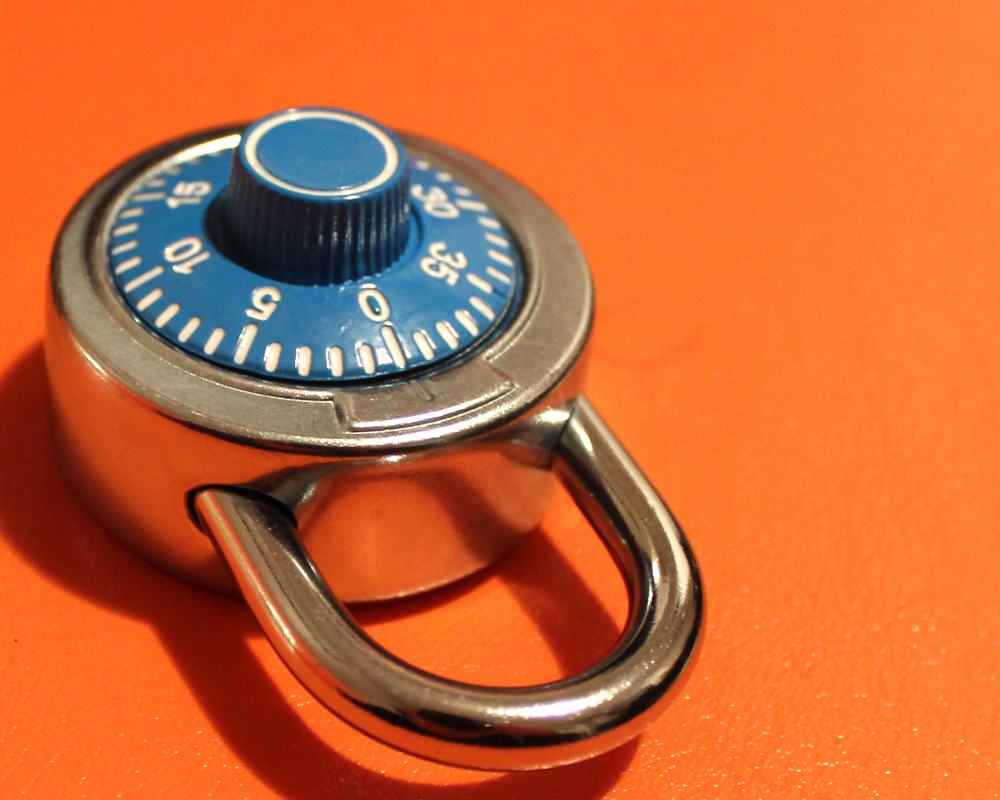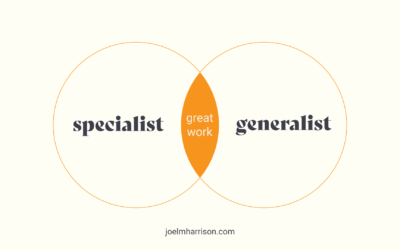Lock-in can be a powerful force when you’re working with your business.. your baby. By lock-in I mean you’re over invested in what you’ve already done to want to change.
By the end of this post I want you to feel more free, and more motivated to actually make the changes in your business that will take it from where it is now (not great) to where it should be (amazing).
 Seth Godin has been influential in the early part of my marketing journey, and I’m using his term lock-in to illustrate my point. Although, I’m going to use it in a slightly different way. He describes lock-in as it “being too hard to switch” in terms of customers choosing products and services. The reasons could be physical or emotional, but what I’m talking about here is the emotional lock-in you get from putting so much work and emphasis on the little details the first time you don’t want to change them when it becomes necessary.
Seth Godin has been influential in the early part of my marketing journey, and I’m using his term lock-in to illustrate my point. Although, I’m going to use it in a slightly different way. He describes lock-in as it “being too hard to switch” in terms of customers choosing products and services. The reasons could be physical or emotional, but what I’m talking about here is the emotional lock-in you get from putting so much work and emphasis on the little details the first time you don’t want to change them when it becomes necessary.
It’s easier than ever to change
What you need to realize is that change happens constantly to businesses that are flourishing. But, it doesn’t happen by accident. They intentionally change little details, like the colour of their website header to see how it impacts their customers or clients. Or which trade magazine they’re going to advertise in. And on the technology side it has become so easy to make changes and tests to gradually optimize your business to it’s full potential. Sometimes a few clicks can increase your sales if you have an e-commerce site. Or sometimes a different piece of candy for your customers kid at the door will make them want to come back the next time.
There’s no way you can get your marketing absolutely perfect the first time
You do the best you can with the information and resources you have. That’s all anyone can do. but when you get new information(your social media followers aren’t commenting on any of your cat pictures) you MUST change something. Even bigger issues like branding or your business name can become outdated if your business grows. But you mustn’t let your pride get in the way of your success.
The biggest issue perfectionists have is, we’re afraid to be wrong. I am too. I spend way to much time on some insignificant details when I could have just decided and put it out there with the intention of re-evaluating later. This sort of re-evaluate later theory is booming in the startup world. It allows you to be flexible and nimble so you can try, evaluate, change, and repeat.
But instead, we spend excessive amounts of time and money making it ‘perfect'(even though it’s probably far from it) but we spent so much time and it’s the best we could do right? And if it was perfect, then we can’t change it. Because if we change it, it means our best effort was wrong, and our pride and ego are challenged.
Change is now a requirement to success
Earlier years might have been a little bit slower. The introduction of the fax machine was revolutionary, but how many innovations popped up completely changing businesses around that time? Not many. We have innovations more impactful than the fax machine happening every month all around the world. Staying on top of what’s new in technology is a full time job in itself let alone learning how to use any of it.
Our fast paced economy where businesses go from an office in a garage to billion dollar acquisition in 5 to 7 years means that the time of planning and perfecting before you get it out there is done. You need to finish what you’re working on and get it out as soon as possible and stop spending money on it. The double plus side is later you’ll be able to spend less money more effectively on your changes because you will have more insights to what works and what doesn’t.
The 4 Tip Summary:
- Technology has given rise to easily manipulated business aspects so make use of it.
- Know what ‘good enough’ is to get your product or strategy out the door so you’re not too over-invested emotionally to change it later.
- Change is not defeat. Your ego might take a hit, but all the necessary tasks in life are hard.
- You must change if you want to keep up with the accelerating businesses whizzing by you.
Happy Marketing,
Joel M. Harrison




